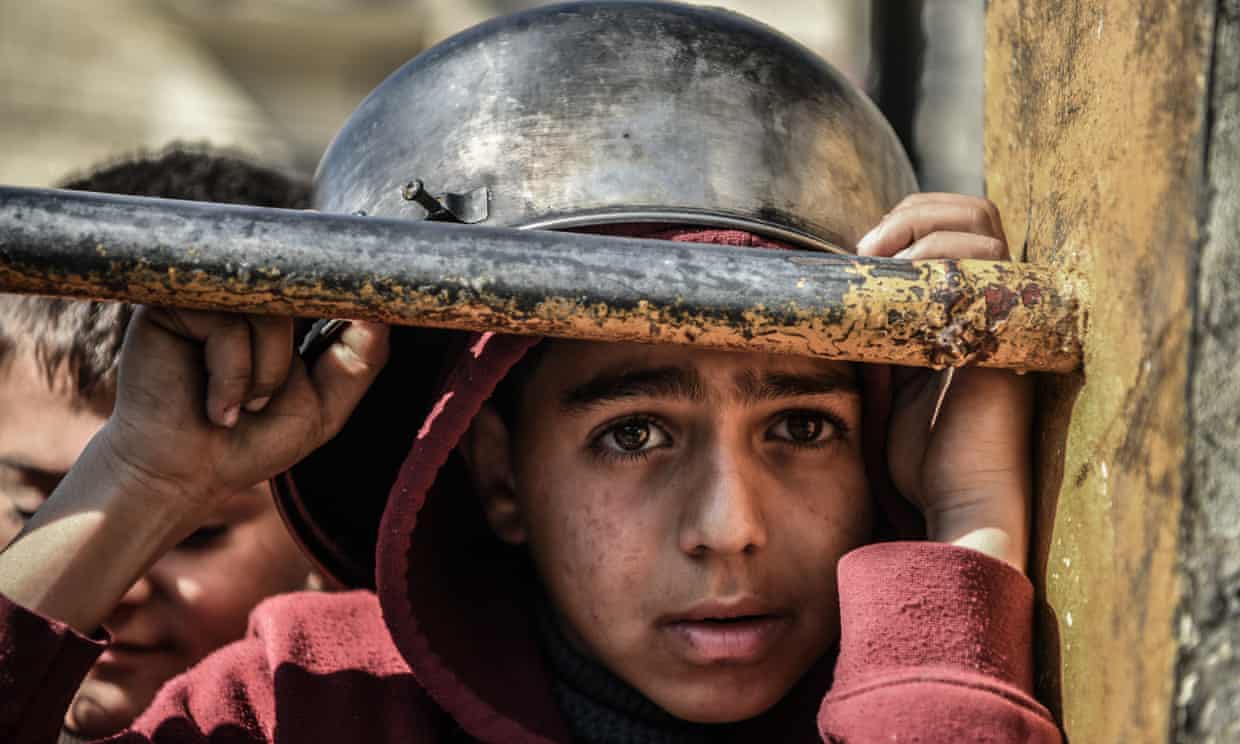From Gaza to Ukraine, from Sudan to Myanmar, youngsters are being raped, abducted, maimed, killed and even recruited as soldiers
Callous disregard for civilian lives and safety is a disturbing feature of modern armed conflict. From Ukraine and Gaza to Sudan and Myanmar, respect for the “laws of war” is being eroded or is non-existent. Non-combatants are deliberately targeted. Most shocking, and unforgivable, is the wanton harm – the UN term is “grave violations” – done to children.
In his latest report on children and conflict, UN secretary general António Guterres warned that children “continued to be disproportionately affected” by war-related violence and abuses. By this, he meant killing and maiming, rape, sexual violence, abductions, school attacks and recruitment of child soldiers. All were on the rise, he said.
Some examples: Myanmar’s civil war brought a 140% increase in grave violations in 2022. In South Sudan, intercommunal violence played havoc with children’s lives. Countries with the highest UN-recorded totals of abuses were the Democratic Republic of the Congo, Israel-Palestine, Somalia, Syria, Ukraine, Afghanistan and Yemen. Guterres’s report was compiled before the Gaza war erupted. More than 11,500 Palestinians aged under 18 have been killed, local officials say. Many more have been injured. About 24,000 children have lost one or both parents; 17,000 are separated or unaccompanied. Jewish children were among the hostages seized by Hamas on 7 October. Now a new disaster looms in Rafah.
The UN children’s fund, Unicef, says the war has had a severe impact on mental health, with more than 1 million children in Gaza needing support. Typical symptoms include “high levels of persistent anxiety, loss of appetite, they can’t sleep, they have emotional outbursts of panic every time they hear the bombings”, a spokesman said. War-related malnutrition and disease are additional deadly foes.
This tsunami of misery makes a mockery of international law, specifically the Geneva conventions. “In all wars, it’s children who suffer first and suffer most,” Unicef says. “Even wars have rules. No child should be cut off from essential services… No child should be held hostage… Hospitals and schools must be protected from bombings… The cost to children will be borne [by] generations to come.”
Amid the ongoing failure to agree a ceasefire, it is estimated that a child is still dying every 15 minutes in Gaza, two mothers every hour. These horrors provoked an impassioned cry of protest from Israeli author Gideon Levy last week. He accused the army of indulging in a “violent rampage” and Israeli society of refusing to reflect on the price it might ultimately pay. “Israel is erasing generations in Gaza and its soldiers are killing children in numbers competing with the cruellest of wars. This will not and cannot be forgotten. How can a people ever forget those who killed its children in such a manner? How can people of conscience around the world remain silent?” Levy asked.
Russia’s illegal abduction of thousands of children after its 2022 invasion of Ukraine is another way of waging war on the most vulnerable – and demoralising the enemy. Kyiv has documented almost 20,000 cases out of a possible 200,000. They form the basis of war crimes charges brought against Russia’s president, Vladimir Putin, by the international criminal court.
While the abductions have been well publicised in the west, too little has been done to rescue the victims (or to prosecute Putin).
“Russia is actively erasing their Ukrainian identity and inflicting unbelievable emotional and psychological damage,” Latvia’s president, Edgars Rinkēvičs, told a conference devoted to “Russia’s war on children” in Riga this month.
Putin’s “re-education” trafficking of children is effectively a weapon of war, aimed at obliterating Ukraine’s future. Olena Zelenska, the wife of Ukraine’s president, Volodymyr Zelenskiy, said time was running out as the children grew up. “Russia is telling them they are not wanted, that nobody is looking for them,” she said. As usual, Russia is lying.
Less watched conflicts and emergencies are equally destructive of children’s lives. Last week saw belated focus on the crisis gripping drought-stricken northern Ethiopia following the war in Tigray. More than 3 million people there face acute hunger. Younger children and babies are most at risk in a country where 45% of the 126m-strong population is aged under 15.
“Veterans of relief operations are comparing the crisis to the situation in 1984, when a combination of drought and war caused a famine that killed up to a million people,” wrote regional expert Alex de Waal. “The UN estimates that more than 20 million Ethiopians are in need of food aid.”
The forcible recruitment of children by armed groups, terrorists and criminal gangs is another global growth area. The UN says more than 105,000 children, boys and girls, were involved in violent conflicts between 2005 and 2022, although the actual figure is probably much higher. Child soldiers are not only made to fight. They are also used as guards, lookouts and couriers, and are exploited sexually.
In Ecuador, president Daniel Noboa’s newly declared war on gangs has highlighted how minors are sucked into, and become victims of, powerful criminal groups. In the first half of 2023, 1,326 children aged 12 to 17 were reportedly arrested for crimes such as contract killings, drug dealing and robbery. In 2022, 289 minors were murdered.
Ecuador is not untypical of the threats facing children on a range of fronts worldwide. In Myanmar, Burkina Faso and Mali, attacks on schools and hospitals are increasing, the UN says. Amnesty International warns that nearly 10 years after Boko Haram terrorists abducted hundreds of schoolgirls in Chibok, Nigeria is still failing to protect its children. Denial of humanitarian access, as by the Afghan Taliban, is another lethal problem. And so it goes on.
How shaming all this is. How truly shocking. That adults and nations choose to fight each other is normal, though regrettable. But a world war on children? How did it come to this?
